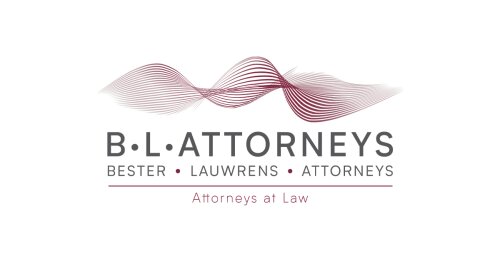Best Lawyers in Cape Town
Share your needs with us, get contacted by law firms.
Free. Takes 2 min.
List of the best lawyers in Cape Town, South Africa
South Africa Legal Questions answered by Lawyers
Browse our 36 legal questions in South Africa and read the lawyer answers, or ask your own questions for free.
- Family dispute
- Im asking on behalf of my parents. My grandmother had terminal brain cancer and before she fell completely ill she sold her house and gave my mother power of attorney. The money from the house was paid into my grandmother's account. That money went to any expenses my grandmother had... Read more →
-
Lawyer answer by Ascendance International Consulting (A-I-C)
Thank you for sharing the details of your situation. It sounds like your mother acted in a responsible manner by using the funds for your grandmother’s care and medical expenses, which is a common use of power of attorney. That...
Read full answer - If someone in a hearing wrote things on a document and made a booklet for everyone to see and defamed my character so HR and managers can see
- I, [name removed], was called for a dismissal hearing but a booklet of documents was compiled and there was a document typed out that stated "please help her she is not mentally stable and has a small boy to care for and didn’t have any family in Bloemfontein, she (me)... Read more →
-
Lawyer answer by Ascendance International Consulting (A-I-C)
In South Africa an employer’s written statement that you “are not mentally stable” and that “pills will not help you” can be used to justify dismissal, but the Labour Relations Act (Act 66 of 1995) and the Code of Good...
Read full answer - Can I open a civil lawsuit against someone for defamation of character and do I have enough evidence?
- Good afternoon, I have been involved in a family dispute since last year November, claiming I have disrespected someone within the family (to my knowledge, I have not) and no one is willing to tell me what it is that I supposedly did. In the meantime, I have been called... Read more →
-
Lawyer answer by Ascendance International Consulting (A-I-C)
In most jurisdictions a defamation claim can succeed only if (1) a false statement of fact about you was communicated to at least one third‑party, (2) the statement was “published” (i.e., shown to others in the WhatsApp family group counts...
Read full answer
South Africa Legal Articles
Browse our 23 legal articles in South Africa written by expert lawyers.
- Managing Import Tariffs and Customs Disputes in South Africa
- Key Takeaways Managing import tariffs and resolving customs disputes in South Africa requires strict adherence to timelines and precise commodity classification. Navigating the South African Revenue Service (SARS) framework effectively protects businesses from costly delays and penalties. You have exactly 30 days to file a Notice of Objection against a... Read more →
- A Guide to Navigating Divorce Proceedings in South Africa
- Navigating Divorce Proceedings in South Africa Key Takeaways Ending a marriage in South Africa involves navigating specific legal channels, from deciding on child care to dividing assets based on your matrimonial property regime. Understanding the procedural differences between regional courts and the High Court can save you significant time, money,... Read more →
- Cross-Border Insolvency: Protecting Assets in South Africa
- Legal Framework: South Africa governs cross-border insolvency through the Cross-Border Insolvency Act 42 of 2000, which incorporates the UNCITRAL Model Law. Mandatory Recognition: Foreign liquidators or "representatives" have no standing to deal with South African assets until they obtain a formal recognition order from a South African High Court. COMI... Read more →
About Hiring a Lawyer in Cape Town, South Africa
Hiring a lawyer in Cape Town involves several steps that can be navigated smoothly with some foresight. The process typically begins with identifying the specific legal assistance you require, whether it’s for personal, business, or criminal matters. After deciding your needs, you should research law firms or individual lawyers who specialize in those areas. Recommendations from friends or online reviews can be helpful. Once you have a shortlist, arrange consultations to discuss your case and gauge their expertise and compatibility. Ensure you understand their fee structure, which may include hourly rates or fixed fees depending on the case. Finally, a written agreement outlining the terms of representation should be established.
Why You May Need a Lawyer
There are various situations in Cape Town where legal assistance becomes necessary. Common instances include buying or selling property, drafting a will, or dealing with family matters like divorce or custody. Business owners may require legal advice for company formation or contract disputes. Employment issues, such as unfair dismissal or workplace discrimination, often necessitate legal intervention. Furthermore, criminal charges like driving under the influence, theft, or assault necessitate the expertise of a legal professional to navigate the justice system effectively. Overall, a lawyer provides valuable guidance, ensuring your rights are protected and your interests represented.
Local Laws Overview
Cape Town falls under South African law which is multi-faceted and includes constitutional, civil, criminal, and commercial laws. Cape Town, being part of the Western Cape Province, also has localized provincial ordinances. Noteworthy laws include the Consumer Protection Act, which safeguards consumer rights; the Labour Relations Act, focused on fair workplace practices; and property laws that govern real estate transactions. South Africa's legal system has roots in Roman-Dutch law, and some aspects derive from British law facilitating a unique blend of legal principles. Cape Town's legal landscape also considers socio-economic challenges, thus laws often aim to address broad social justice issues.
Frequently Asked Questions
How can I find a reputable lawyer in Cape Town?
To find a reputable lawyer, start by seeking referrals from friends or family, conducting online research, and reading client reviews. Ensure the lawyer is registered with the Legal Practice Council which governs legal professionals and maintains a standard of ethics and professionalism.
What should I ask during a consultation with a lawyer?
Enquire about the lawyer's experience in your case type, their success rate, how they plan to approach your case, expected costs, and the timeline for resolution. A consultation aims to assess not just expertise, but also your comfort in working with them.
Are there any free legal aid services in Cape Town?
Yes, organizations like Legal Aid South Africa and various NGOs offer free or subsidized legal services to those who qualify based on income. Additionally, university law clinics provide assistance as part of student training programs.
What fees can I expect to pay for legal services?
Fees vary significantly depending on the nature and complexity of your legal issue. Lawyers may charge hourly rates, a flat fee, or contingency fees in certain types of cases. Always request a fee agreement in writing to avoid misunderstandings.
How long does it typically take to resolve a legal matter?
The duration depends on the case's complexity and the court's schedule. Simple matters, like drafting a will, may be resolved quickly, whereas litigation can take months or even years. Discuss timelines with your lawyer for a realistic expectation.
Can I change my lawyer if I am not satisfied?
Yes, you can change your lawyer if you are not satisfied with their services. Review your contract terms regarding termination and discuss the process for transferring your case to another professional.
Do lawyers in Cape Town offer payment plans?
Some lawyers may offer payment plans, particularly for lengthy or costly services. It is important to discuss payment options during your initial consultation to see if a suitable arrangement can be made.
Is my case information kept confidential?
Yes, lawyers are bound by confidentiality and ethical obligations to protect client information. This ensures that all discussions and documents remain private, fostering an open and trustworthy attorney-client relationship.
What should I bring to a lawyer consultation?
Bring any documents related to your case, such as contracts, legal notices, correspondence, and your personal identification documents. These will help the lawyer better understand your situation and provide pertinent advice.
Can I represent myself in legal proceedings?
While it is legally permissible to represent yourself, it is generally not advisable due to the complexity of legal procedures and potential impacts on the outcome. A lawyer's expertise is invaluable in adequately defending your interests.
Additional Resources
For further assistance and information, consider reaching out to the Legal Practice Council for lawyer listings and standards. Legal Aid South Africa offers services for those who cannot afford a private lawyer. Additionally, the Cape Law Society provides resources and guidelines on legal matters. Governmental bodies like the Department of Justice and Constitutional Development and the South African Police Service can also provide guidance regarding legal rights and processes.
Next Steps
If you need legal assistance in Cape Town, start by identifying your legal issue and the type of lawyer you require. Gather potential lawyer referrals and conduct initial consultations to discuss your case, understand costs, and establish rapport. Always verify the lawyer's credentials and ensure they are formally registered. When you're ready, formalize the engagement with a written contract to begin the legal proceedings with confidence. Remember, taking the time to find the right legal help is pivotal for a favorable resolution.
Lawzana helps you find the best lawyers and law firms in Cape Town through a curated and pre-screened list of qualified legal professionals. Our platform offers rankings and detailed profiles of attorneys and law firms, allowing you to compare based on practice areas, experience, and client feedback.
Each profile includes a description of the firm's areas of practice, client reviews, team members and partners, year of establishment, spoken languages, office locations, contact information, social media presence, and any published articles or resources. Most firms on our platform speak English and are experienced in both local and international legal matters.
Get a quote from top-rated law firms in Cape Town, South Africa — quickly, securely, and without unnecessary hassle.
Disclaimer:
The information provided on this page is for general informational purposes only and does not constitute legal advice. While we strive to ensure the accuracy and relevance of the content, legal information may change over time, and interpretations of the law can vary. You should always consult with a qualified legal professional for advice specific to your situation.
We disclaim all liability for actions taken or not taken based on the content of this page. If you believe any information is incorrect or outdated, please contact us, and we will review and update it where appropriate.
Refine your search by selecting a practice area.




































